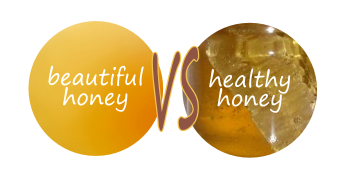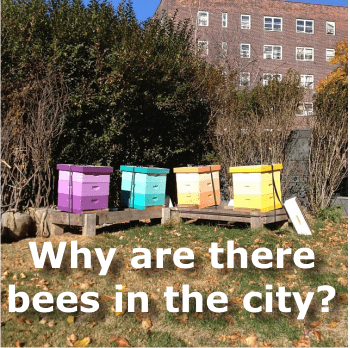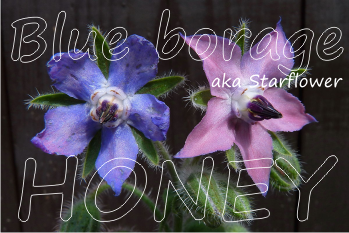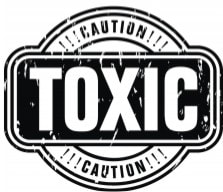Do you know the difference between pure honey and raw honey”? Do you know there are studies showing that pure honey has the same composition with raw honey? And that it is even better? (By “pure” we all understand “pured”, “cleared”, meaning processed to make it look like a crystal golden liquid, which will never crystallize.)
The natural question: they are scientists, why would they lie?
 In 2010 a Research Project Funded by National Honey Board, Ropa Science Research – Wisconsin, conducted the study Comparison of Mineral and Enzyme Levels in Raw and Processed Honey.
In 2010 a Research Project Funded by National Honey Board, Ropa Science Research – Wisconsin, conducted the study Comparison of Mineral and Enzyme Levels in Raw and Processed Honey.
The National Honey Board contracted with American Analytical Chemistry Laboratories to test honey samples taken prior to processing and then after being processed. The goal was to find out the degree to which the minerals, antioxidants and enzymes change after honey is sent through an industrial processing system.
The researchers all said that processing is not a fully destructive process. Heating and filtering honey does not completely eliminate all enzymes, nor does it have a negative effect on honey’s mineral and antioxidant levels.
They analyzed only some of honey’s constituents, namely:
– Enzymes (Phosphatase, Amylase, Glucose Oxidase, Invertase, Catalase)
– Minerals (Calcium, Magnesium, Phosphorus, Potassium)
– Antioxidants (ORAC, Polyphenols)
Here are some of the results after honey was processed in two different ways. First heated and then filtered with Diatomaceous Earth. Secondly, only strained, using less heat and a larger pore size filter. See the picture for the results.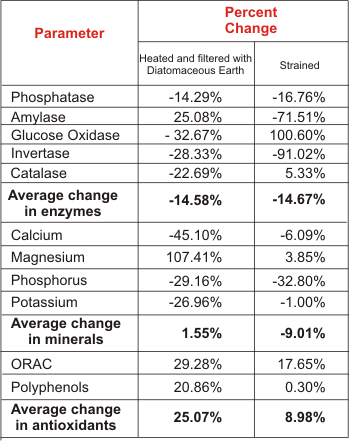
As we can see most enzymes were destroyed, as expected. Minerals are known to be heat resistant, yet they decreased too, with the exception of magnesium. Antioxidants increased, likely due to the effects of averaging the samples after processing – that’s what the researchers said.
And concluded: “Given the costs of conducting a test of this nature (there were 11 tests conducted on 15 different samples of honey for a total of 155 data measures) it is unlikely that this analysis will be repeated. Furthermore, honey’s variability makes it quite difficult to draw significant conclusions.”
 In 2013 there was another study: Effects of Processing on the Pollen and Nutrient Content of Honey. (Katherine Beals, David Ropa, University of Utah, Salt Lake City, UT Ropa Science Research, Madison, WI.), again funded by the National Honey Board.
In 2013 there was another study: Effects of Processing on the Pollen and Nutrient Content of Honey. (Katherine Beals, David Ropa, University of Utah, Salt Lake City, UT Ropa Science Research, Madison, WI.), again funded by the National Honey Board.
This study examined the effects of commercial processing on the pollen and nutrient content of honey. They used the commercial processing of honey involving heating and filtering (using diatomaceous earth). This is known to delay crystallization and produce a less cloudy appearance (preferred by consumers).
The researchers were trying to found out if indeed raw, unprocessed honey is more “nutritious” than honey that has been processed.
The results showed that minerals and antioxidant registered an increase, vitamins showed a slight decrease, while pollen was completely eliminated. The increase of mineral and antioxidant can be explained by:
“1.The inherent variability of micronutrient content and AOX capacity in honey samples may make the use of averages unsuitable in a study of this type.
2.The process of heating honey may eliminate moisture, thereby increasing the concentration of minerals and antioxidants.
3. Diatomaceous earth (used for filtration) may increase the concentration of minerals and antioxidants in honey.”

In 1942 a study was published about “VITAMIN CONTENT OF HONEYS “. (M. H. HAYDAK, L. S. PALMER, M. C. TANQUARY AND A. E. VIVINO, Divisions of Entomology and Economie Zoology and Agricultural Biochemistry, University Farm, St. Paul, Minnesota)
The study shows that processing reduces the vitamin content of the honey in a large proportion, from one-third to almost one-half of the original values:
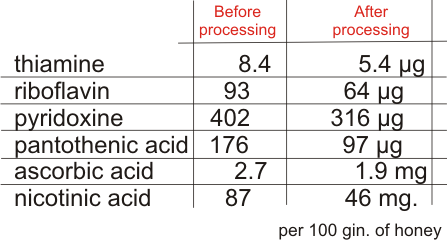
Haydak and Palmer (’42) have found that bee bread (pollen stored by bees in combs) contains all the vitamins which were shown to exist in honey. The logical conclusion was that the reduced vitamin content of the processed honey was no doubt partially due to the removal of the pollen. (The variations in the vitamin content of different samples of honeys could had been at least in part, due to the variable amount of pollen present in honey.)
They also said that some of the vitamins were probably adsorbed by the diatomaceous earth.
The conclusion of the study: “the clarification process, tends to reduce its food value and should be avoided.”
It seems that besides eliminating impurities and cloudy aspect and prevent crystallization, processing honey removes all the pollen. And intends to do that for the “beauty” of honey!
 In 2000, “Postharvest Technology of Fruits and Vegetables” was publishing R.C. Sharma and his “Honey: processing and product development”. He says there: “Heating honey at 90° C for 8 hours COMPLETELY destroys the invertase activity and antimicrobial properties, rapidly reduces the diastase activities and causes changes in carbohydrates.”
In 2000, “Postharvest Technology of Fruits and Vegetables” was publishing R.C. Sharma and his “Honey: processing and product development”. He says there: “Heating honey at 90° C for 8 hours COMPLETELY destroys the invertase activity and antimicrobial properties, rapidly reduces the diastase activities and causes changes in carbohydrates.”
Do we need pollen in our honey?

Absolutely. Because bee pollen is a super nutritious compound, containing all the nutrients required by the human body. It is a source of proteins, vitamins, minerals, beneficial fatty acids, carotenoids and bioflavonoids which are antiviral, antibacterial and helpful to cardiovascular and immunity health.
R.C. Sharma says that the vitamin content of honey depends upon the pollen admixture in it.
Conclusion?
Does processing destroy the composition of honey?
According to earlier studies, it does. (see paragraphs 3 and 4)
According to recent studies, it doesn’t that much. (see paragraphs 1 and 2). It decreases some components, but increases others! Like magnesium or antioxidants values. And there is one good thing that happens during heating the honey: HMF, a compound with antitumor properties, found only after the process of heating.
Quotation from honey.com: “The research indicates that a balanced approach to the promotion of honey as a healthy, unique ingredient is warranted by this study. (So they admit it is a healthy ingredient!) Neither raw nor processed honey is superior to the other in every way (The changes were obvious and presented by them. They are different yet equal?). Both filtered and unfiltered honeys provide benefits that are not found in most other sweeteners (Why is it reduced to only “sweetener”?), which will continue to set honey apart from many common sweetening ingredients. (well, we salute your trust in honey’s health benefits!- if this was meant by “apart”)“.
In a word, processed honey and raw honey are the same, yet apart from other sweeteners.
Processing does alter the composition of honey. If increases something and decreases something else, it will alter its balance and symbiosis among the components. Honey is not only one element and its quality can be increased by heat. It’s a complex food which is beneficial to our health only in his genuine original version. More than 5000 years can vouch for this.
So, do we want beautiful honey or healthy honey?
I always go for raw honey and not for pure honey. And as organic as it can possibly be. If you live in the USA and are looking for raw honey, you might want to check out the Mohawk Valley Trading Company. Their raw honey has not been heated, filtered, blended or processed. All of the pollen, enzymes, propolis, vitamins, amino acids, antioxidants, minerals and aromatics are in the same condition as they were in the hive and you can buy it on Amazon. They sell several types of monofloral honey but also wild flower honey, which I always recommend. Give it a try!
Related articles:
• How is honey processed What is processed honey?
• How do I know if my honey is real: How to test real honey
• What is “honey made in China” or fake honey: What is fake honey?
References and further reading:
Comparison of Mineral and Enzyme Levels in Raw and Processed Honey”;
Katherine Beals, David Ropa: Effects of Processing on the Pollen and Nutrient Content of Honey”;
M. H. HAYDAK, L. S. PALMER, M. C. TANQUARY AND A. E. VIVINO: “VITAMIN CONTENT OF HONEYS”; R.C. Sharma “Honey: processing and product development”.
|
|

